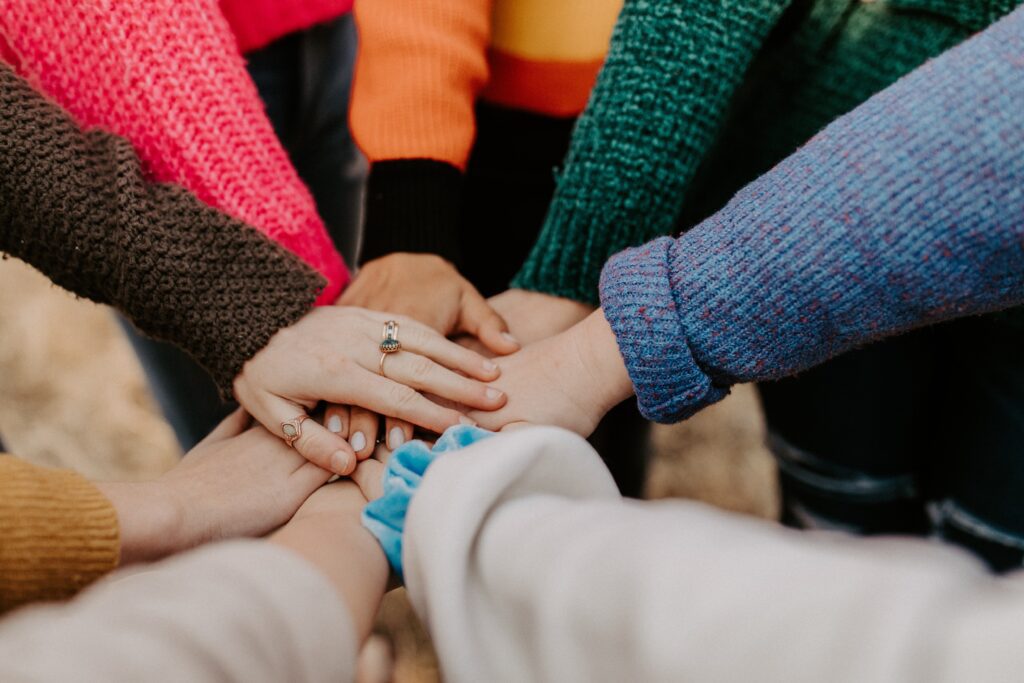
Hearing a cancer diagnosis is hard, and it might be challenging to think of ways to support a loved one who receives such news. However, recent research has shown that individuals tend to manage emotional crises better, have a better quality of life, and adjust to cancer-induced changes if they receive support from their friends and family members.
It might be difficult to balance your friend’s cancer journey and your own feelings and reactions to the disease but remember that it is okay not to feel okay.
Grief, anger, sadness, despair, and fear are typical reactions that should be acknowledged. It is essential to find ways to cope with your emotions first to provide effective support to your friend.
So how is it best to support a friendship through cancer journey, when your friend is managing a cancer diagnosis?
Keep regular activities
While there are no set rules on how it is best to support your friend going through the cancer journey, one thing is for certain – keeping the friendship, treating them the same as before the cancer diagnosis, and carrying on the regular activities is the key.
Listen
Always listen to your friend and focus on his/her needs. They may not want to talk about their cancer and its treatment (it may seem too overwhelming to explain to multiple people about their experience), or the opposite – that might be something that is all they want to discuss.
You can let them know that you are there if they ever need to talk; however, listening sometimes may mean that you don’t need to respond. While cancer is a complex topic to talk about and know what is the best thing to say, starting a conversation is an essential part of your friend feeling supported.
Check-in
Showing how much you care about your loved one friend can be an essential piece of them feeling that they are not alone. Remember to call them or send them texts, letting them know that you will check on them again soon, whether it’s a time of diagnosis or treatment. Visit them when they are available and are able to see you; however, make sure that the visits are regular but short. Always remind them that you are thinking about them.
Allow space for laughter and sadness
Share a fun story or a silly YouTube video with your friend or do things they enjoy. At certain times, admit your friend’s sadness and just simply be there for them.
Remember to avoid phrases like “everything is going to be fine.” Hearing such positive affirmation for the future may indicate that they are not able to share their reality with you.
Plan
Work together with your friend to create plans that would give them something to look forward to; however, do not feel disappointed if there are last-minute changes and your friend needs to alter the plans.
Cancer is a challenging journey. Treatment may present challenges that were not part of your friend’s life before, e.g., fatigue preventing them from doing many activities that they initially planned with you.
Give a gift
Create a care package for your friend after asking them to let you know what they would like (and can) eat. Add their favourite book or puzzle to the package to feel busy when you are not around.
While approaching St. Valentine’s Day, prepare a special gift reminding your loved one what a precious space they have in your heart, e.g. printed photos from special moments you’ve spent together, a lovely face towel with personal embroidery, or a friendship-reminding bracelet.
These thoughtful gifts for someone with cancer are not only practical but also infused with love and consideration, aiming to bring moments of joy and comfort during challenging times.
During the treatment
When cancer changes your appearance, it’s vital to show empathy and support. Patients undergoing treatment may experience a range of physical changes, from hair loss to weight fluctuations. It’s essential to be mindful of these changes and avoid making comments that could inadvertently cause distress. Instead, focus on offering emotional support and being there for your friend during this challenging time.
Also, be patient with your friend; simple activities might present a significant challenge to them, such as walking up the stairs. Just simply allow them to take their pace to do any activities.
After treatment
Sometimes cancer survivors experience the cancer burden at its’ fullest after the treatment is completed. Their concern will most likely be mental health rather than physical side effects. Coping with the emotional burden of what they have experienced will require a true friend’s support.
Finding the right words or providing the best emotional support to a friend going through a cancer journey might be challenging. You can start the conversation by asking them how you could best support them during this challenging time.









Comments
Thank you. Comment sent for approval.
Something is wrong, try again later